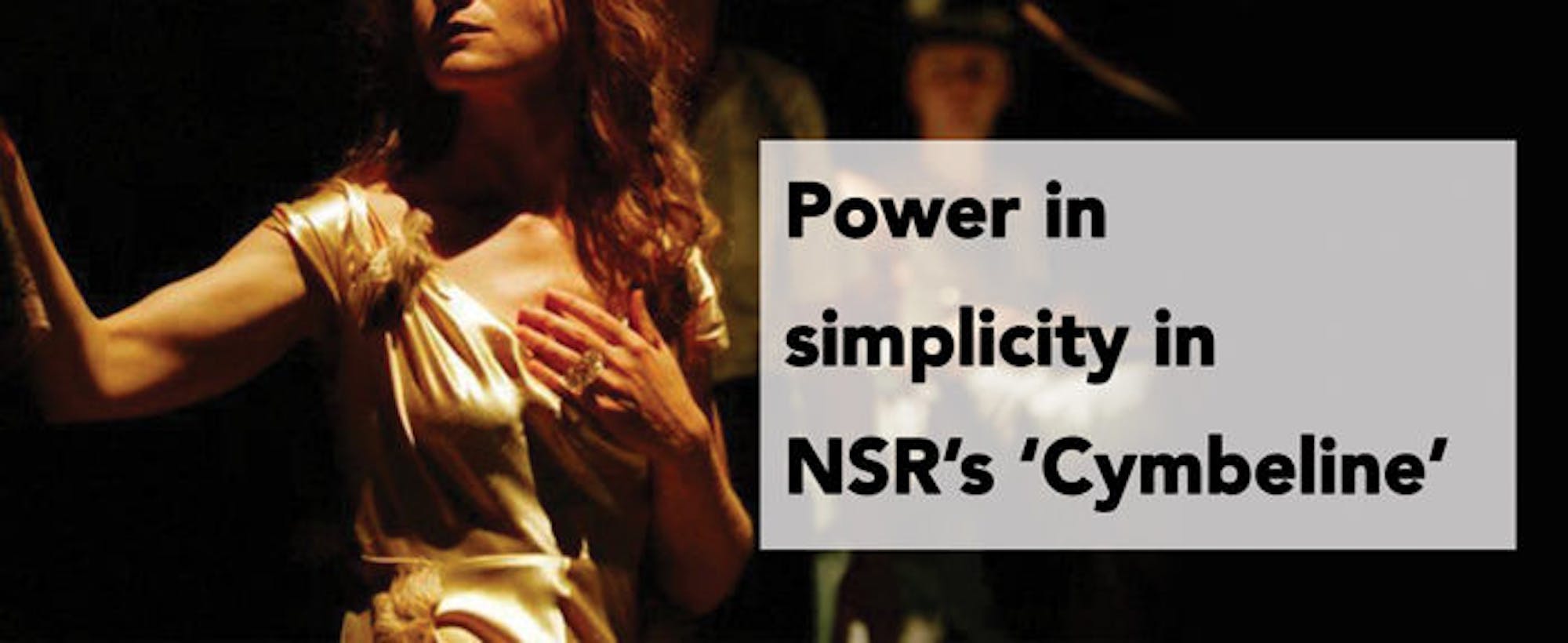
The third-floor, black-box theatre in Washington Hall is one with which I’m intimately familiar. Walking in and finding the room empty but for a large trunk and chairs arranged in a thrust stage was nothing short of thrilling.
The student Not-So-Royal Shakespeare Company production of “Cymbeline” did not disappoint. In her director’s note, junior Mary Elsa Henrichs encourages her audience to “lean forward and engage with the work.” With standout performances from sophomore Isobel Grogan as the tossed-about princess, Innogen, and junior Ellis Sargeant as her star-crossed husband, Posthumus Leonatus, I did not have trouble finding the edge of my seat. The leads’ moments in contact were stricken with moving tenderness, and their moments apart, powerful passion. Sophomore Ballard Powell’s Cloten and his Queen-mother, played by freshman Lulu Phifer, provided the counterbalancing comedic relief with their equally compelling antics.
“Cymbeline” is one of the least well-known Shakespeare works, ensuring Henrichs had her work cut out for her. While I cannot speak to her choices in textual cuts specifically, I can confirm that I followed the story quite easily and was thoroughly engaged. The plot of “Cymbeline” is best described as a conglomerate of Shakespeare’s most recognizable tropes and plot devices. Mistaken identities, girls in caps masquerading as boys, falsely reported infidelity and associated “evidence,” a bitter king and a manipulative and ultimately mad queen. These elements were handled with a deft hand through Henrichs’ direction and the cast’s familiarity with the language. This was an important element of the show for Henrichs, who said her process was “all about the text.” From the beginning, rehearsals became about guiding her actors, teaching them to “wield the language.”
The show opened with the cast’s exaggerated breathing as they drew the black-box curtains and set out the blocks that were part of the minimalist set. Throughout the opening dialogue’s summary of past events — a feature of many of Shakespeare’s plays meant to situate the audience in the current plot — the ensemble performed a very simple dumb-show, without which I doubt I would have so fully understood. Having been exposed to the language in my own studies, I do not typically struggle to follow Shakespeare’s verse. I am confident, that fact notwithstanding, that Henrichs’ blocking choices and the cast’s eloquence would make the show accessible to a traditionally “lay” audience.
While there were moments of dissatisfying pause and the pace was not seamless, I was connected enough with the majority cast that I was pulled right along. Additionally, while the show took clever emotional advantage of the intimacy of a thrust arrangement, the majority of the blocking was clearly constructed with a proscenium in mind. Having sat in the center section of the theater, I had a clear view of every event. I know that, had I sat in one of the lateral sections, I would not have enjoyed so clear a connection with the characters and the action.
In all, it was refreshing to see a student Shakespeare so engaging and, at times, hilarious. Henrichs’ and NSR’s “Cymbeline” was fun, accessible and endearing. [gallery type="rectangular" columns="2" size="medium" ids="167913,167917,167919,167920"]









